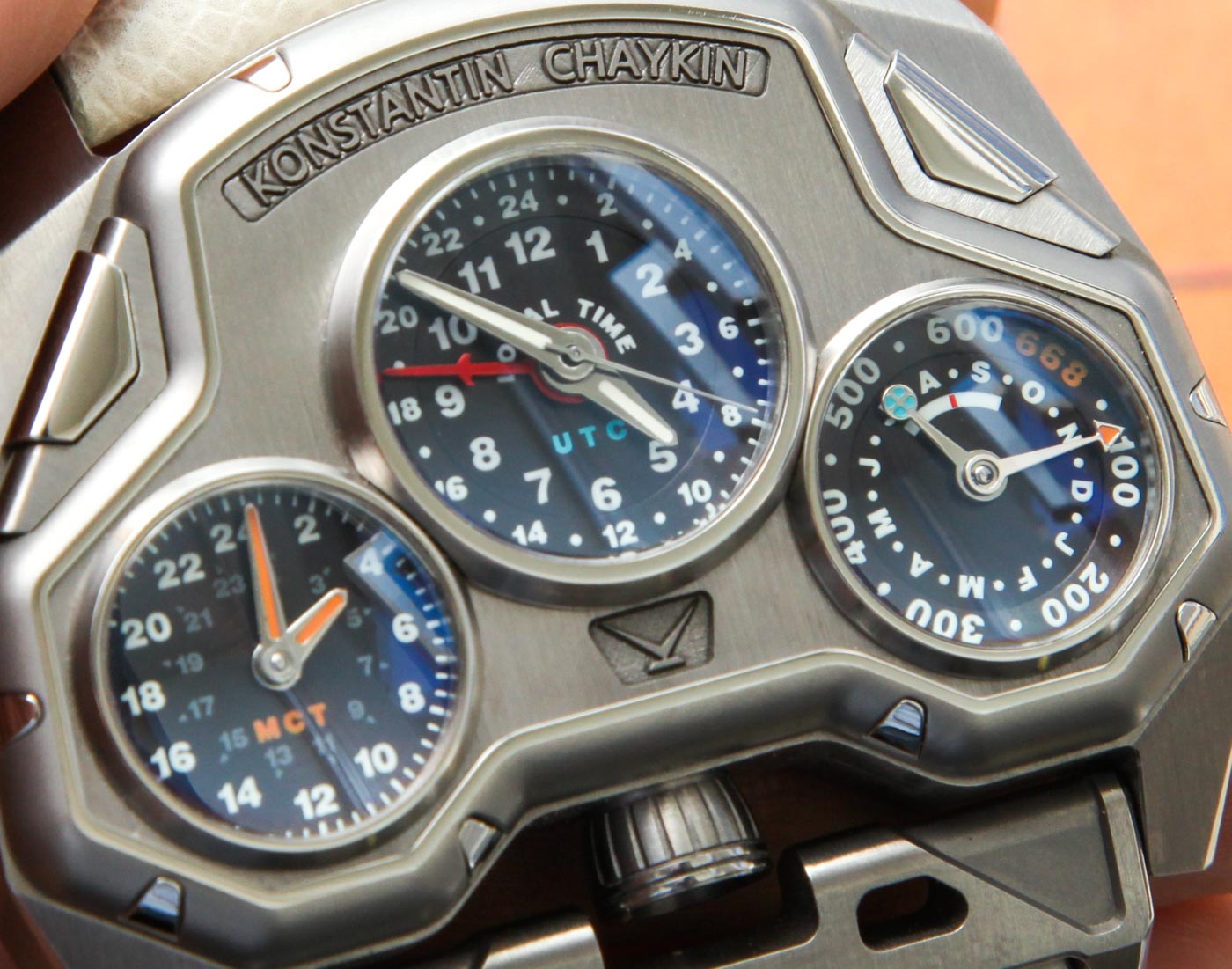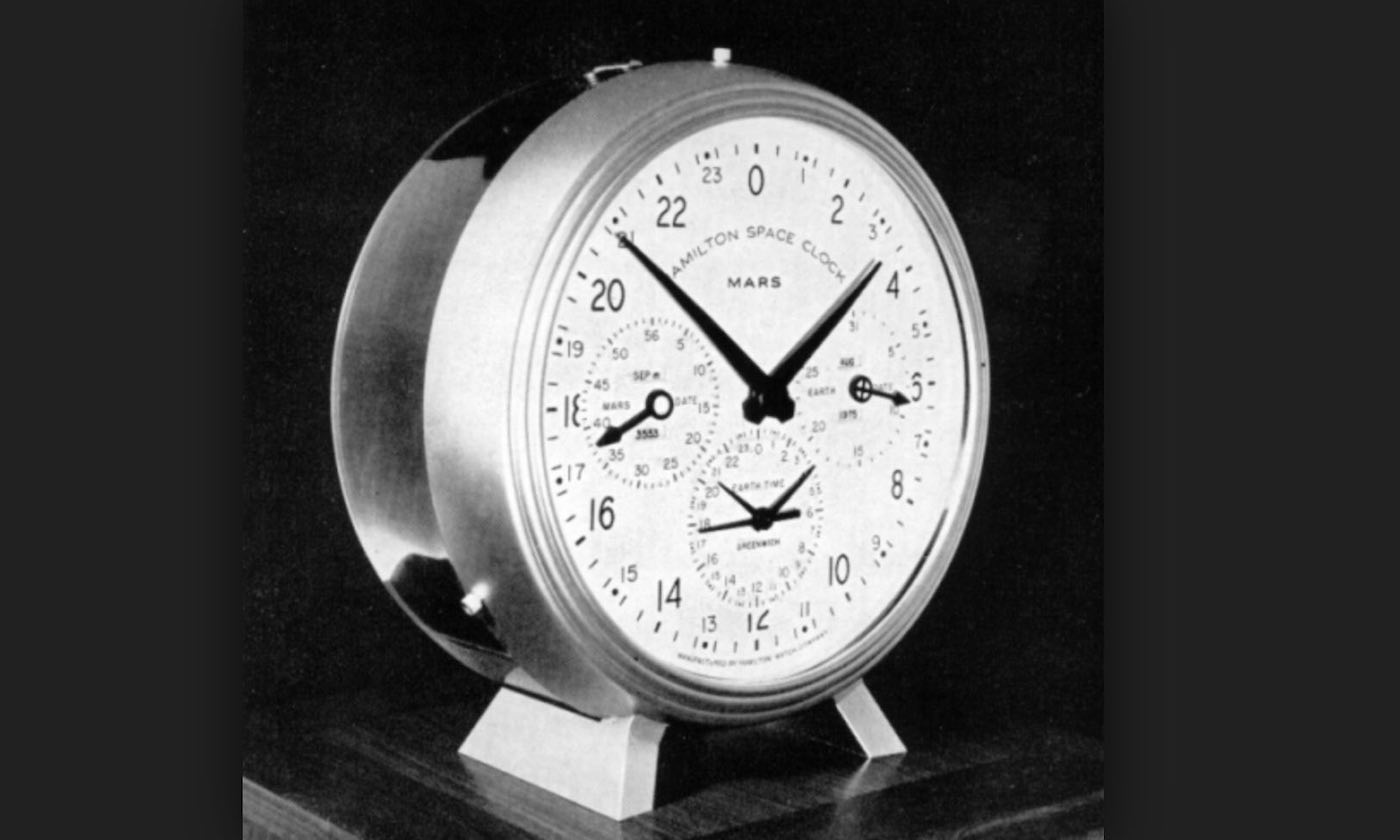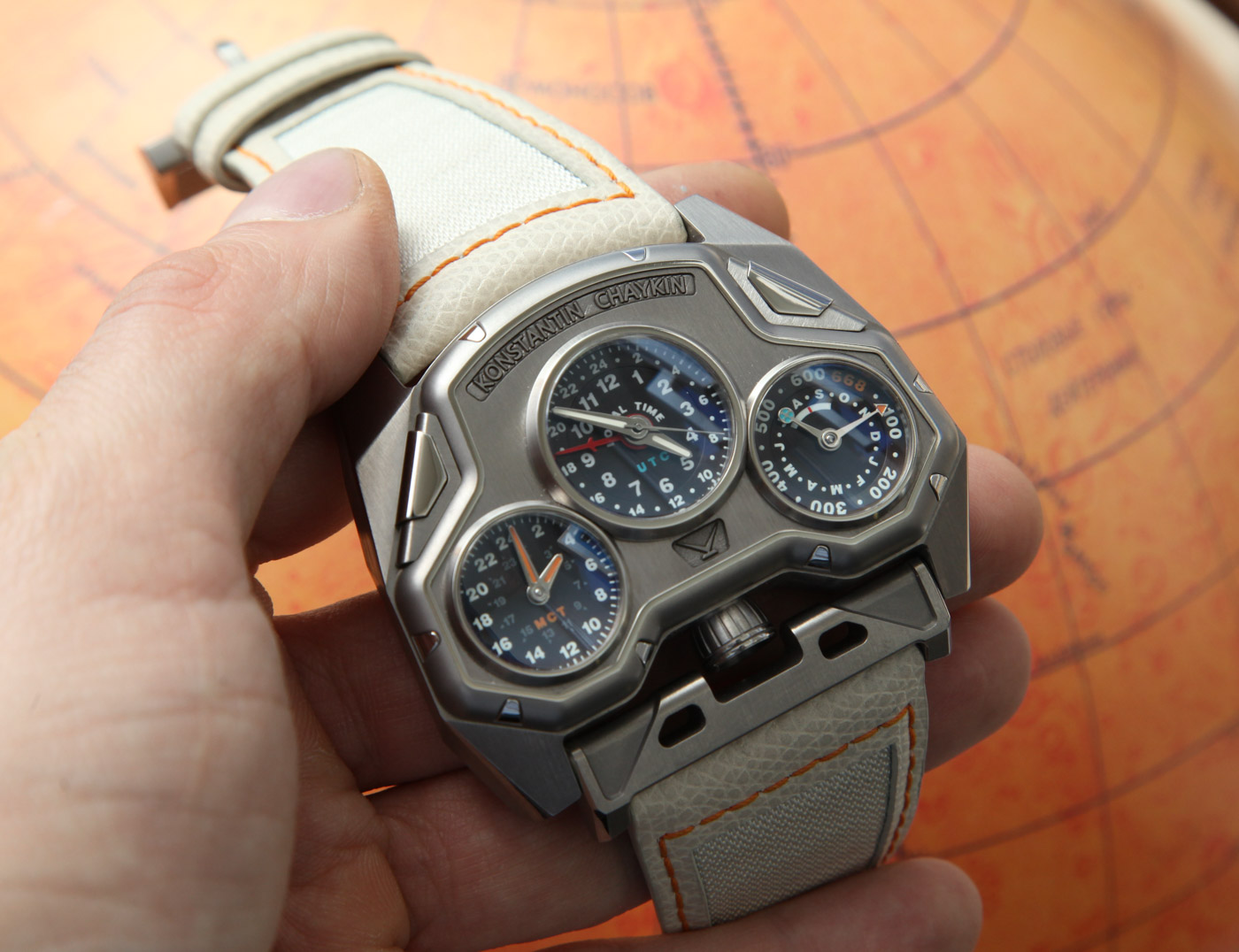
This article is about the fantastically inspired, impressively creative, and all-new Konstantin Chaykin Mars Conqueror watch. Before that, though, a quick side-note. From now until forever, I will begin every article I’ll ever write about Konstantin Chaykin by saying this: If you haven’t already, I highly recommend you first read my report of my visit to Konstantin Chaykin’s watch manufacture in Moscow. In it, you’ll read about one of the most complex and capable watch manufactures in the world and, even more importantly, you’ll read what is probably the most detailed and honest profile on Mr. Chaykin himself. I think it is pointless to look at any of his works without first getting to know him, the creator.

Konstantin Chaykin
In a nutshell, Konstantin is peerless in the way he combines creativity with productivity. I dare not say he is the most creative — that would be unfair to the numerous geniuses in the watch industry today who are at the top of their game, and it wouldn’t be fair to say he is the most productive, as productivity can be measured in various ways. However, when looking at the outstanding diversity of his work and the incredible number of astoundingly different watches he has produced in the last 15 years of his watchmaking career, Konstantin is in a group of one. The image above is from the manufacture visit article: Konstantin stands in front of his bookshelves and cabinets, all full of amazing volumes about a fantastic variety of things from every chapter of human history. That noted, the inspiration for the Mars Conqueror watch sounds not far-fetched but the opposite: a perfectly natural continuation of his work.
Let us begin with the complex inspiration behind the Konstantin Chaykin Mars Conqueror.

On July 27, 2018, two marked astronomical events happened simultaneously. First, Mars and Earth were in a notable position, called the “perihelic opposition.” This occurs once every 15 to 17 years when the Earth and Mars are closest to each other in their respective orbits and when Mars and the sun are on directly opposite sides of Earth. The Earth makes two trips around the sun in around the same amount of time Mars takes to make one trip, so sometimes the two planets are on opposite sides of the sun, very far apart, whereas other times we catch up with our neighbor and pass very close to it. On July 27, 2018, we had Mars at its closest on one side and, simultaneously, we had the sun on the other side. This made for a full moon kind of effect — Mars was a bright orange spot in the night sky — perhaps you spotted it last year. I did, but I had no idea about this astronomical occurrence.

On the very same day, another remarkable astronomical event took place: the longest lunar eclipse in the 21st century, which lasted three hours and 56 minutes. That was a pretty special day for space geeks the world over, as well as one Russian watchmaker. It was on this day, as the orange Mars was supported in the sky by the unusual reddish tones of the eclipsed moon, that Konstantin announced he’d be working on a Mars Conqueror watch — but it is only today that the watch itself is fully revealed.
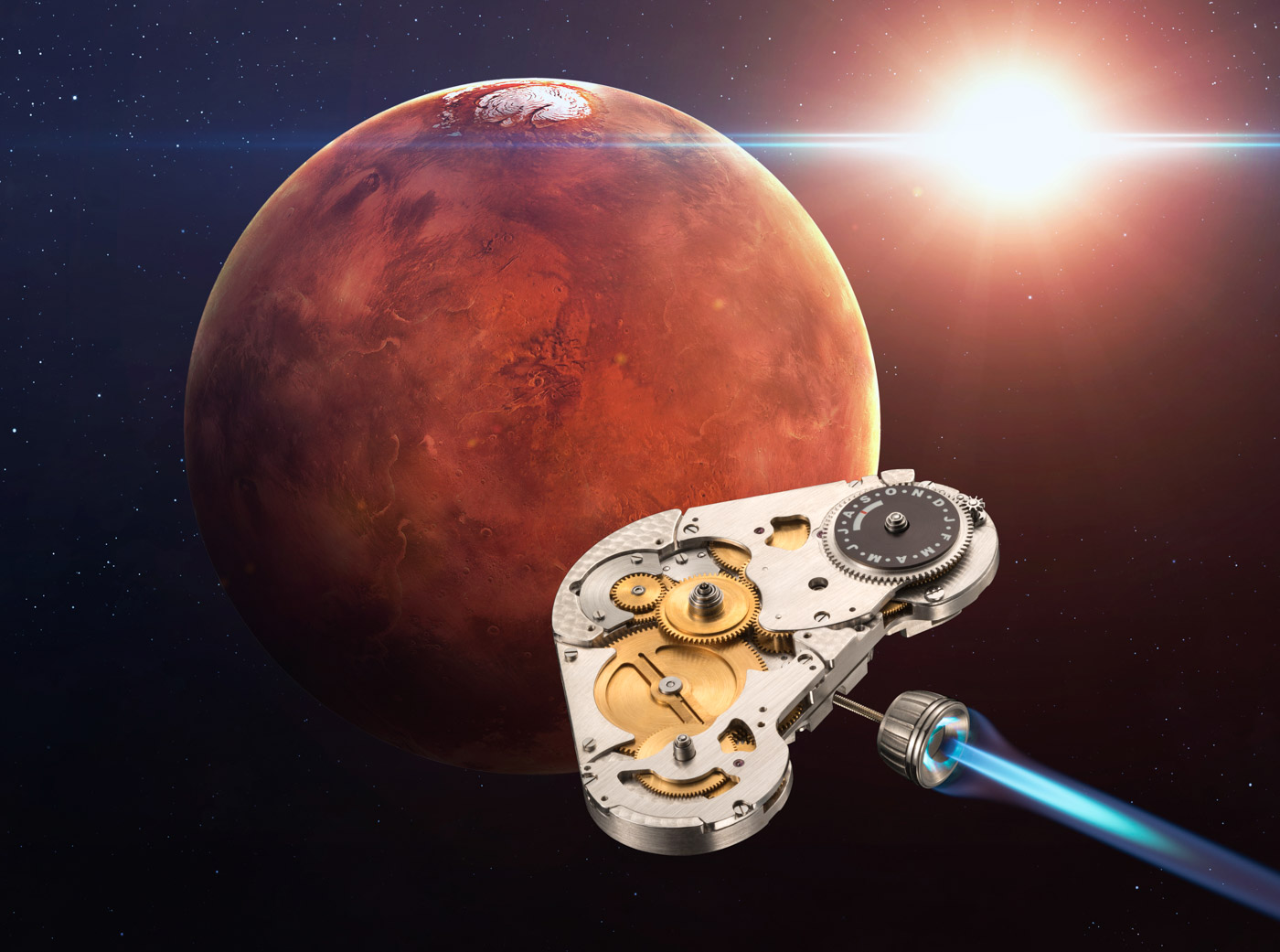
Just a few years ago, practically no one seriously believed that a piloted Mars expedition mission was even remotely feasible; more recently, Mars has become the next frontier for Russia’s Roscosmos, USA’s NASA, SpaceX, and Boeing, as well as for a number of other nations and corporations. Apparently, NASA, in addition to making extensive scientific studies of Mars, has started competitions among leading architectural bureaus to design Martian settlements as part of its Centennial Challenges Program. This program, by the way, includes a 3D-printed Habitat Challenge to create sustainable housing for deep-space exploration (including the agency’s journey to Mars), as well as a humanoid Space Robotics Challenge. Realistically, a piloted flight to Mars by 2040 — perhaps sooner — is on the road map for the world’s leading space organizations.

Elon Who?
Interestingly, the Mars Conqueror watch’s inspiration is Elon Musk and his SpaceX program. In the official press release of the Mars Conqueror, Konstantin recalls that the idea of a wristwatch for future Mars-dwellers appeared on a late evening in November 2017. While finishing a movement, he noticed that an employee was listening to Elon Musk, who was enthusiastically explaining his Big Falcon Rocket project, along with plans for the colonization of Mars. In the blink of an eye, Konstantin’s conception of the Mars Conqueror watch was born.
How It Works
Konstantin knew that the watch should show the local Martian time and that it would be constantly linked to Earth time. The watch was to also be equipped with an indicator for the spatial arrangement of the two planets, realized in an intuitive way. The main dial displays Earth time with a central seconds hand to indicate that the watch is in working order – just as every ISO-certified dive watch has to have such a display for the same purpose. This dial also has a central-mounted 24-hour GMT hand for the added functionality of a second timezone display. To its left, the first dial in the row has the local Martian time, while to the right, the third dial is a planetary indication of the relative positions of the two planets and their oppositions. The indications of the average solar time on Earth and on Mars are synchronized, meaning the movement only uses one balance assembly. This is the guarantee that the Mars Conqueror will not accumulate deviations in the indications of Earth and Mars time.

With all this penned down, the development phase of this highly complicated module began, with three main dials of Martian Time, Earth Time, and Planetary Indication — the math and mechanics on this took Konstantin eight months to finalize.
That is a remarkably short period of time once you learn that the number of functional parts of the Mars Conqueror movement is comparable to a minute repeater, which is widely regarded as one of the most challenging watch movements to design and construct. This was possible thanks to Konstantin’s extensive experience in creating astronomical watches and clocks — starting with the Lunokhod and Decalogue wristwatches and leading to the incredibly complicated (and no less bonkers) Computus clocks, including this Computus Easter clock.

The Mars Conqueror is a first in its combination of calculations and indications, even though astronomical clocks, in different shapes and complexities, have existed for at least 2,000 years. The Antikythera mechanism, widely regarded as the world’s oldest computer, had about 30 meshing bronze wheels to make for astronomical calculations and indications and is believed to have been crafted around 80 BC by Greek scientists. But specialized space traveler’s functions are still at the early development stage in watchmaking since piloted expeditions are conducted in Earth’s low orbits (with the exception of several lunar missions of the 1960s and 1970s), where cosmonauts and astronauts didn’t need any special “space” time-measuring.
Martian Watch History
I tip my hat to Konstantin for being a good sport and highlighting in his official press release other Martian timepieces of the past. He credited American astronomer I. M. Levitt’s Space Clock Mars, created in 1954 to display Earth and Mars time simultaneously, adding that two copies of these electromechanical clocks were produced by the American watch company Hamilton.
Levitt’s electromechanical design was considered cutting edge at the time but would never be something that could be installed in a wrist watch. Konstantin goes on to add that the production of the first wrist watches, both mechanical and quartz and with the indication of Martian time, was started by California watchmaker Garo Anserlian in 2004. Anserlian’s wrist watches were used by the NASA engineer team that controlled Martian rovers Spirit and Opportunity — how cool is that?
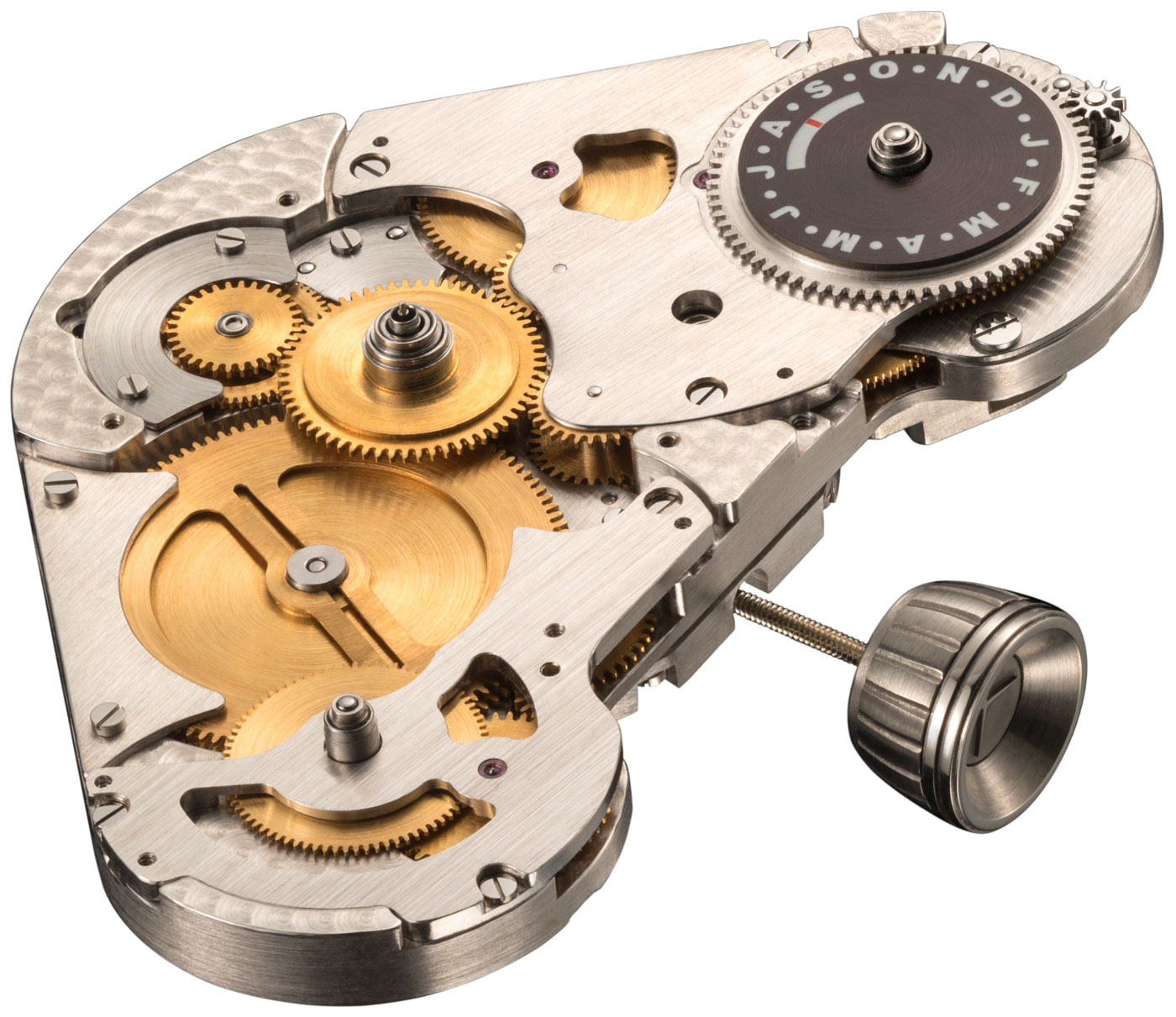
Back To How It Works
With all this history, Konstantin knew he had to take things to the next level, so he decided to add the planetary position display to his timepiece. This feature is produced as a planetarium, meaning it shows the positions of Earth and Mars on their orbits, allowing one to estimate the distance between the two planets as well as to recognize the moments of oppositions and perihelic oppositions. The Konstantin Chaykin Mars Conqueror watch is 100% mechanical, so as to guarantee perfect functioning, both during the future space journey and on Mars.


